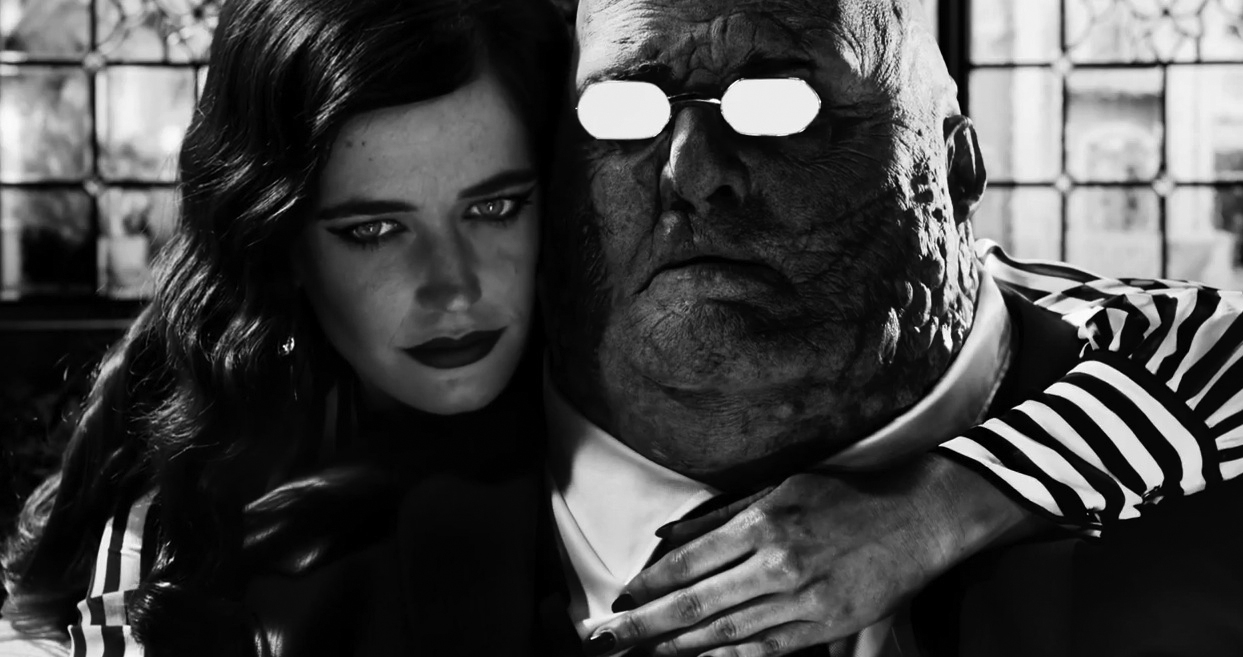By Alex Rake (Contributor) – Email
Print Edition: September 3, 2014

Sin City: A Dame to Kill For has every bit of style, action, and excellent writing and acting that the first film had. However, the second installment in Frank Miller’s world of Sin City lacks the symmetry and unity of the first film.
For those unfamiliar with the first movie, it was made up of connected short stories about the nobler citizens of the corrupt Sin City; the first plotline came back full-circle in the last, connecting all the stories together with one significant plot detail.
A Dame to Kill For also consists of many stories, but they don’t connect in the same way. The first story has little to do with the last, and the longest story about the “dame to kill for” has the fewest connections of all. Without the same sense of unity, the film as a whole has less impact.
The shorter runtime may be at the root of this decreased unity, since there is less room for the stories to explore their connections. This is not so terrible, since each story on its own is still pretty incredible as an individual unit. Each has a great sense of immediacy and tension, especially the recurring one about Johnny (Joseph Gordon-Levitt), a young gambler out to prove himself to his absent father. The only reason to be disappointed by the lack of unity, really, is if you remember the first film’s superior crafting of its plots.
One thing this sequel has over its predecessor is its use of 3D. Sin City is known for its distinct black-and-white, graphic-novel-style visuals, and the 3D allows the movie to get extra cartoony without getting corny. In one scene at the beginning of the movie, a little floating car swerves around Marv’s (Mickey Roark) head as he narrates his drive, and it is delightful in its own, gritty way. In 2D, the effect would fall flat in both senses of the word. This is definitely one movie where the 3D option actually enriches the experience without coming across as arbitrary (as inalmost every other graphic novel movie released since the 3D thing started) and without drawing the viewer out of the real world to simulate another one (as in James Cameron’s Avatar).
The world of A Dame to Kill For is remarkably similar to the one we live in, though ours lacks the cool visuals and superhuman strength everyone in the film seems to have. The corrupt politicians, power-tripping law enforcement, sex-obsessed men and women, and bored, privileged psychopaths of the films would be right at home running our country or our neighbours down South. This sequel especially denies its viewers any sense of escapism, throwing tragedy upon tragedy into the audience’s face. Good people die, or become bad people; bad people succeed, or die unrepentant. If there is a central theme running through this second batch of stories, it is that everything eventually becomes corrupt in Sin City.
With the world’s corruption becoming more and more transparent and the public’s attitude becoming more and more apathetic, we need works like Sin City: A Dame to Kill For in our popular culture. We need stories that make us feel some passion for denying the corrupt their power, neither satisfying this need vicariously through the success of some hero nor convincing us that success is impossible. Besides that, we need more people working in the industry with the kind of style and personality that director Robert Rodriguez provides and the honest, engaging writing of Frank Miller. Though the first film may be better in all these respects, A Dame to Kill For is without a doubt the best thing in theatres right now.


